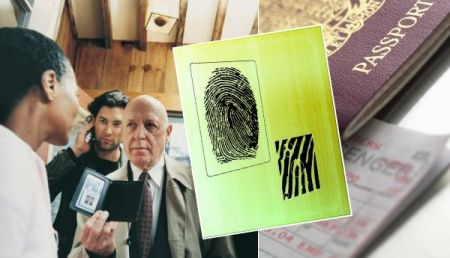Who Can Help
When one falls prey to identity theft; the first question that a suffering mind asks for is – “Who can help?” This new advanced crime is not a long back practice and has evolved and is evolving with the advent of Information Technology. This fact increases frustration and depression for an Identity theft victim that, not much jurisdiction and legal laws protecting and sheltering a victim are available in present scenario. When you are sure that you have fallen to the evil hands of Identity theft then consider seeking legal counsel, especially if you have difficulty clearing up your credit history, or your case is complex and involves a lot of money or for also to determine legal action to take against creditors and/or credit bureaus if they are not cooperative in removing fraudulent entries from your credit report or if negligence is a factor. You could also call the local Bar Association to find an attorney who specializes in consumer law and the Fair Credit Reporting Act. An attorney can help you recover from the fraud and determine whether your rights under various credits, banking, Social Security and other laws have been violated. But also you should immediately report the crime to all police and sheriff's departments with jurisdiction in your case. Do file a police report. Even if the bank or other authorities do not ask you to file a police report, do it anyway.
You should give them as much documented evidence as possible regarding the issue. Remember to get a copy of your police report; this police report’s copy is very useful in all your future correspondence with clients and banks, etc. Do not try to manipulate the case and explain it to the creditors and others who require verification of your case instead give them the phone number of your fraud investigator. Credit card companies, your bank, and the insurance company may require you to show the report in order to verify the crime. Also, call the fraud units of the credit reporting companies. Report them of the theft of your credit cards or numbers. Ask that your account to be flagged. Also, add a victim's statement to your report, up to hundred or so words in consultancy with your fraud investigator. Thereafter also contact all your credit card issuers-- by phone and in writing. Get replacement cards with new account numbers. Ask that the old accounts be processed because when this statement is reported to the credit bureaus, it can be interpreted as blaming you for the loss. In some cases; sometimes victims of identity theft are wrongfully accused of crimes committed by the imposter – the identity theft. If a civil judgment has been entered in your name for actions taken by your imposter, contact the court where the judgment was entered and report that you are a victim of identity theft. If you are wrongfully prosecuted for criminal charges, contact the state Department of Justice and the FBI. Ask for help in clearing your name. This is important because delay in such matter could cost you further more deep troubles of all sorts costing you from public reputation to business prospects. Psychological counseling may also help you deal with the stress and anxiety commonly experienced by victims. Know that you are not alone; there are several others on the earth you have undergone this situation and have evolved out successfully and are spending their lives more happily. Identity theft victims often report that they feel they are somehow to blame and feel remorseful. They can also feel cursed, violated, even powerless, due to the fact that few, if any, of the authorities who have been notified of the crime step forward to help the victim. Discuss your situation with a friend or counselor; close family members are of great pacifiers in these situations. You could contact the Privacy Rights Clearinghouse for information on how to network with other victims. You could share with them your experience and learn from them what they have or are suffering. You should also write to your state and federal legislators and demand for stronger privacy protection and fraud assistance by creditors and credit bureaus by explaining your situation through your personal fraud investigator. You should also contact Privacy Rights Clearinghouse for information on any pending state or federal legislation. Finally, without consulting your fraud investigator do not pay further any bill or portion of a bill, do not cover any checks which were written and/or cashed after the fraudster attacked your privacy Make sure that your credit rating should not be permanently affected, and no legal action should be taken against you. If any merchant, financial institution or collection agency suggests otherwise, simply restate your willingness to cooperate, but do not allow yourself to be coerced into paying fraudulent bills. Your counselor or lawyer can come handy for you in this case. |
Home Already an Identity Theft Victim Find out if you are a victim of Identity Theft Identity Theft Identity Theft Insurance Identity Theft Protection Internet Identity Theft Known Stats and Figures Latest Identity Fraud Scams Using Fraud Alerts Who Can Help Links |
© 2006 www.IdentityTheftExpertSecrets.info All Rights Reserved.

